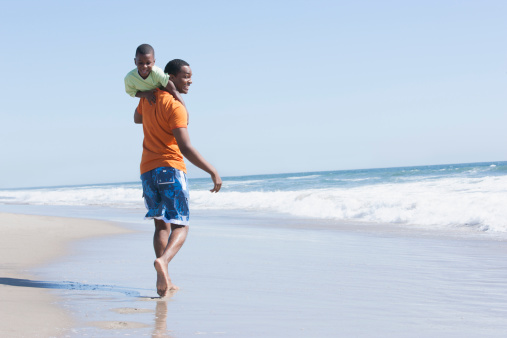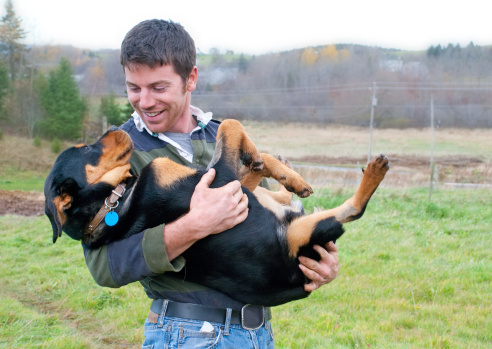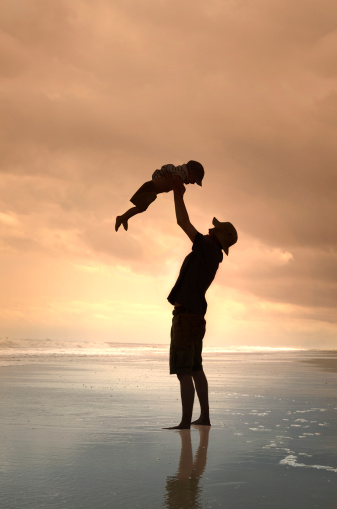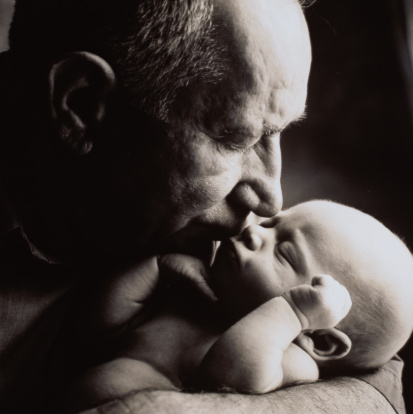 Divorce is a family event that impacts children of all ages.There has been an uptick of divorces for middle-aged and older couples whose children may have already launched their adult lives.Just because children are not living under the same roof with a parent or parents does not mean their lives won’t be deeply affected by family changes that will occur following a divorce.
Divorce is a family event that impacts children of all ages.There has been an uptick of divorces for middle-aged and older couples whose children may have already launched their adult lives.Just because children are not living under the same roof with a parent or parents does not mean their lives won’t be deeply affected by family changes that will occur following a divorce.
At Daisy Camp, I have heard many sad stories of communication breakdowns between parents and their adult children during and after a divorce.Adult children experience unique emotional distress and practical challenges. Regardless of age, children can feel caught in the middle if parents remain in conflict.In fact, adult children can experience a heightened sense of betrayal and confusion about what has happened to their family of origin
Here are three considerations for divorcing parents of adult children:
1. It is helpful for adult children if parents are able to inform them about the divorce with a thoughtfully prepared joint We Statement.This allows parents to be more in charge of the message and the tone, and may gently discourage adult children from feeling as though they are expected to take sides or determine who is to blame.A Neutral Child Specialist can assist parents in the creation of a We Statement.
2. Adult children will continue to have personal and family-centered milestones to celebrate, including graduations, engagements, marriages and births of grandchildren. Advance planning and clear communication with adult children about parents’ readiness and willingness to jointly participate can reduce anxiety for adult children.If parents are not ready and willing to jointly participate, being able to constructively problem solve with children so the events can proceed without undue drama is also helpful to them.A worst-case scenario for adult children is feeling helplessly caught in a power struggle between parents for every family event.
3. Adult children may ask difficult questions, and parents need to be prepared to answer honestly but without making their children feel the necessity of taking sides.Keeping children at the center and out of the middle can be especially challenging if there has been an infidelity or other breach of trust in the marriage.Under these circumstances, it can be especially valuable for divorcing parents to get the support and guidance of a neutral mental health professional.
Collaborative Team Practice provides access to skilled mental health expertise from a Neutral Child Specialist or Neutral Coach to guide parents to support their adult children through a difficult transition that will impact the rest of their lives.It is a privilege to help parents create a legacy of healing and respect for their adult children and grandchildren.
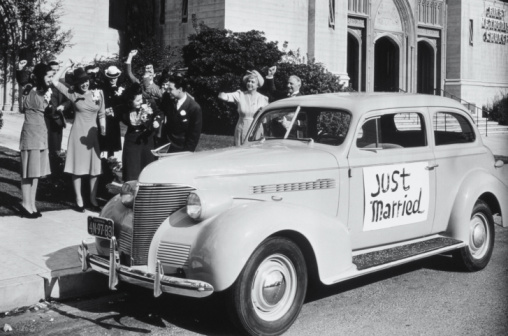 Why are less and less couples getting married? Is it because their parent’s marriages failed? Is it because they don’t see any benefit to marriage? Is it because every wedding appears to be a $20,000 extravagant country club affair?
Maybe, as was written in a recent New York Times article, “…marriage has gone from being a way that people pulled their lives together to something they agree to once they have already done that independently.”
There are several problems with this way of thinking.
One is that children don’t wait for marriage. More and more children are born outside of marriage. This is a problem if the parents separate without ever marrying, because then (at least in Minnesota) the father has no enforceable legal rights to parenting time until he spends a significant amount of time and money to get a judge to order that he can have parenting time with the child. This is true regardless of whether the father has raised the child jointly with the mother since the child’s birth. This is a bad deal for both the father and the child as it typically significantly interrupts their relationship and causes unwarranted stress on the child.
Another reason is that marriage is a financial life jacket in terms of protections for the lower earning spouse and a fair division of the assets accumulated during the marriage. This is one reason same-sex couples had been yearning for the protection of marriage until it became the law in Minnesota in 2013. Same-sex couples were not entitled to a fair division of the house or their partner’s retirement account, without access to the institution of marriage.
Because it is risky financially to accumulate assets together before marriage and because marriage helps protect the father-child relationship for the benefit of child, it is risky business to delay marriage if you are having a child together or are otherwise in a committed relationship.
Why are less and less couples getting married? Is it because their parent’s marriages failed? Is it because they don’t see any benefit to marriage? Is it because every wedding appears to be a $20,000 extravagant country club affair?
Maybe, as was written in a recent New York Times article, “…marriage has gone from being a way that people pulled their lives together to something they agree to once they have already done that independently.”
There are several problems with this way of thinking.
One is that children don’t wait for marriage. More and more children are born outside of marriage. This is a problem if the parents separate without ever marrying, because then (at least in Minnesota) the father has no enforceable legal rights to parenting time until he spends a significant amount of time and money to get a judge to order that he can have parenting time with the child. This is true regardless of whether the father has raised the child jointly with the mother since the child’s birth. This is a bad deal for both the father and the child as it typically significantly interrupts their relationship and causes unwarranted stress on the child.
Another reason is that marriage is a financial life jacket in terms of protections for the lower earning spouse and a fair division of the assets accumulated during the marriage. This is one reason same-sex couples had been yearning for the protection of marriage until it became the law in Minnesota in 2013. Same-sex couples were not entitled to a fair division of the house or their partner’s retirement account, without access to the institution of marriage.
Because it is risky financially to accumulate assets together before marriage and because marriage helps protect the father-child relationship for the benefit of child, it is risky business to delay marriage if you are having a child together or are otherwise in a committed relationship.  Why are less and less couples getting married? Is it because their parent’s marriages failed? Is it because they don’t see any benefit to marriage? Is it because every wedding appears to be a $20,000 extravagant country club affair?
Maybe, as was written in a recent New York Times article, “…marriage has gone from being a way that people pulled their lives together to something they agree to once they have already done that independently.”
There are several problems with this way of thinking.
One is that children don’t wait for marriage. More and more children are born outside of marriage. This is a problem if the parents separate without ever marrying, because then (at least in Minnesota) the father has no enforceable legal rights to parenting time until he spends a significant amount of time and money to get a judge to order that he can have parenting time with the child. This is true regardless of whether the father has raised the child jointly with the mother since the child’s birth. This is a bad deal for both the father and the child as it typically significantly interrupts their relationship and causes unwarranted stress on the child.
Another reason is that marriage is a financial life jacket in terms of protections for the lower earning spouse and a fair division of the assets accumulated during the marriage. This is one reason same-sex couples had been yearning for the protection of marriage until it became the law in Minnesota in 2013. Same-sex couples were not entitled to a fair division of the house or their partner’s retirement account, without access to the institution of marriage.
Because it is risky financially to accumulate assets together before marriage and because marriage helps protect the father-child relationship for the benefit of child, it is risky business to delay marriage if you are having a child together or are otherwise in a committed relationship.
Why are less and less couples getting married? Is it because their parent’s marriages failed? Is it because they don’t see any benefit to marriage? Is it because every wedding appears to be a $20,000 extravagant country club affair?
Maybe, as was written in a recent New York Times article, “…marriage has gone from being a way that people pulled their lives together to something they agree to once they have already done that independently.”
There are several problems with this way of thinking.
One is that children don’t wait for marriage. More and more children are born outside of marriage. This is a problem if the parents separate without ever marrying, because then (at least in Minnesota) the father has no enforceable legal rights to parenting time until he spends a significant amount of time and money to get a judge to order that he can have parenting time with the child. This is true regardless of whether the father has raised the child jointly with the mother since the child’s birth. This is a bad deal for both the father and the child as it typically significantly interrupts their relationship and causes unwarranted stress on the child.
Another reason is that marriage is a financial life jacket in terms of protections for the lower earning spouse and a fair division of the assets accumulated during the marriage. This is one reason same-sex couples had been yearning for the protection of marriage until it became the law in Minnesota in 2013. Same-sex couples were not entitled to a fair division of the house or their partner’s retirement account, without access to the institution of marriage.
Because it is risky financially to accumulate assets together before marriage and because marriage helps protect the father-child relationship for the benefit of child, it is risky business to delay marriage if you are having a child together or are otherwise in a committed relationship. 



